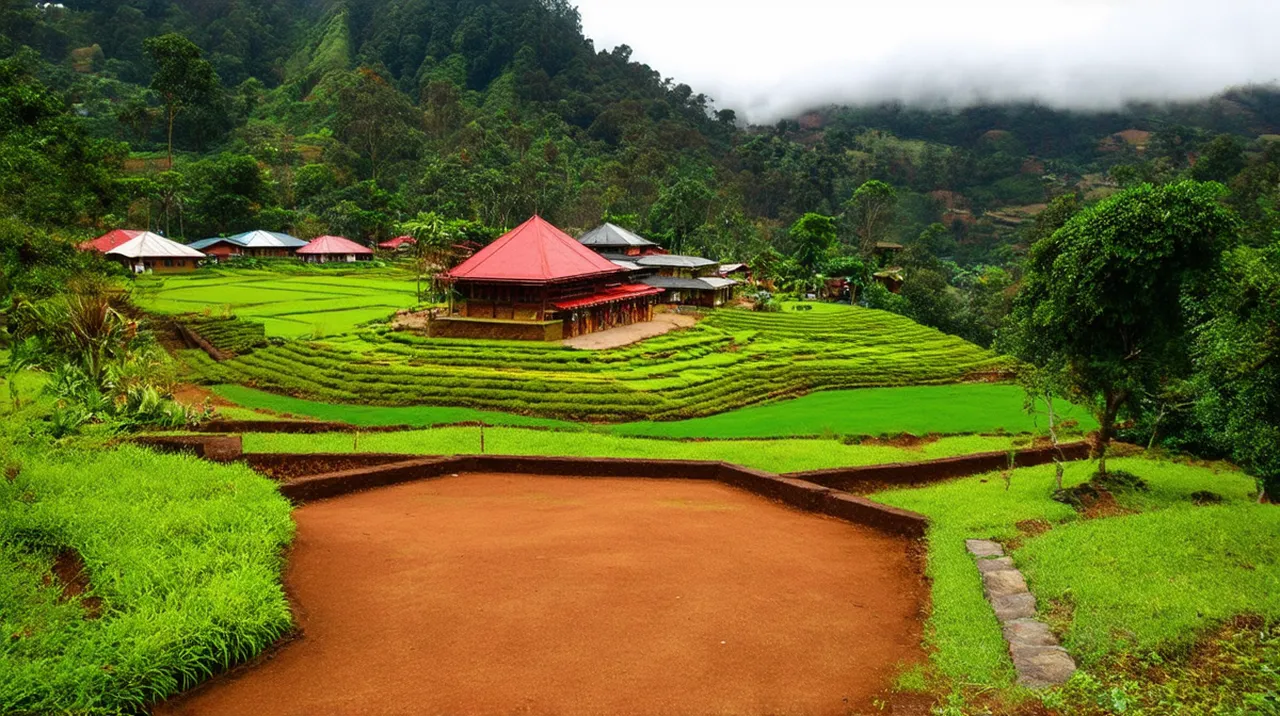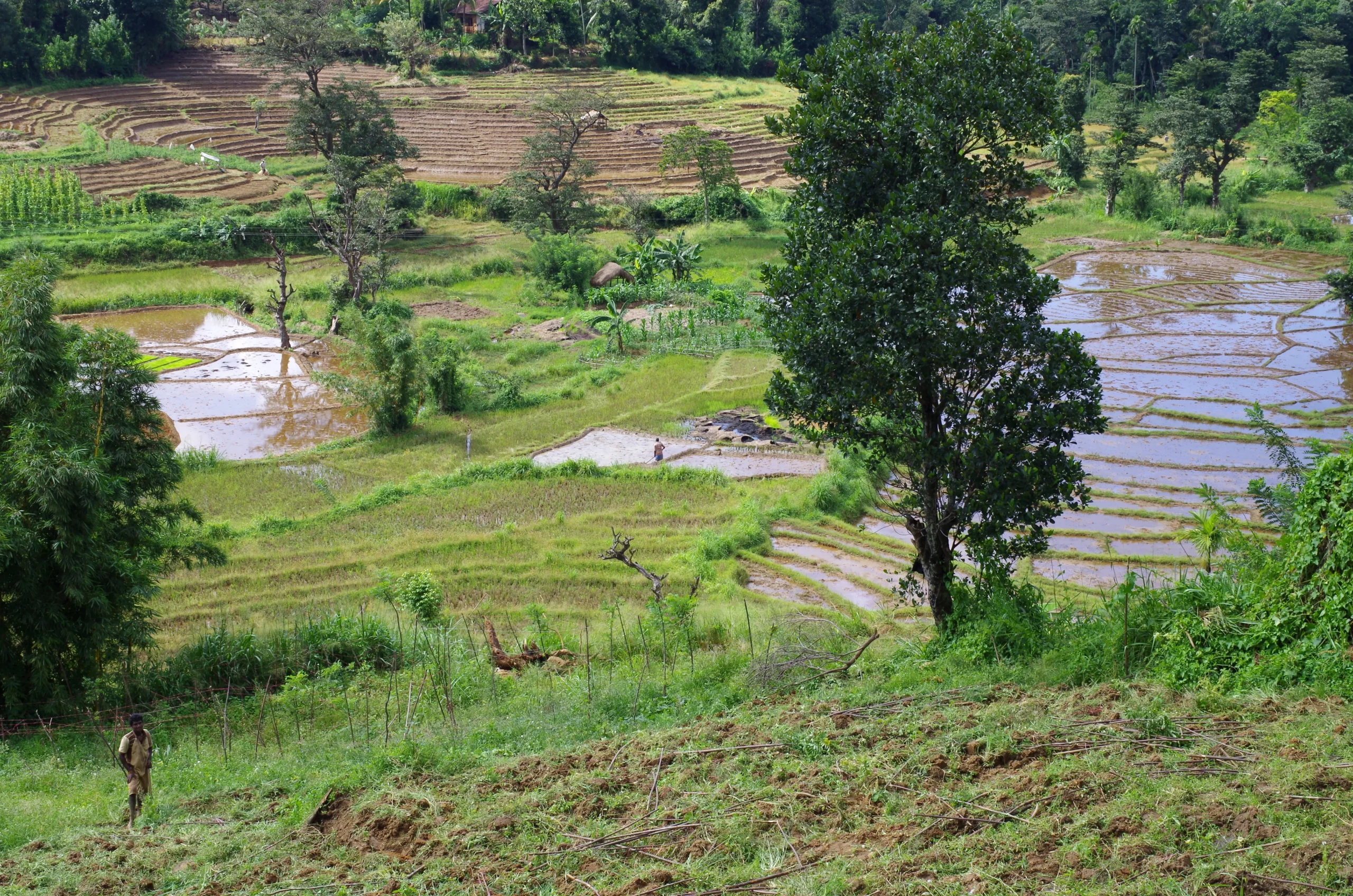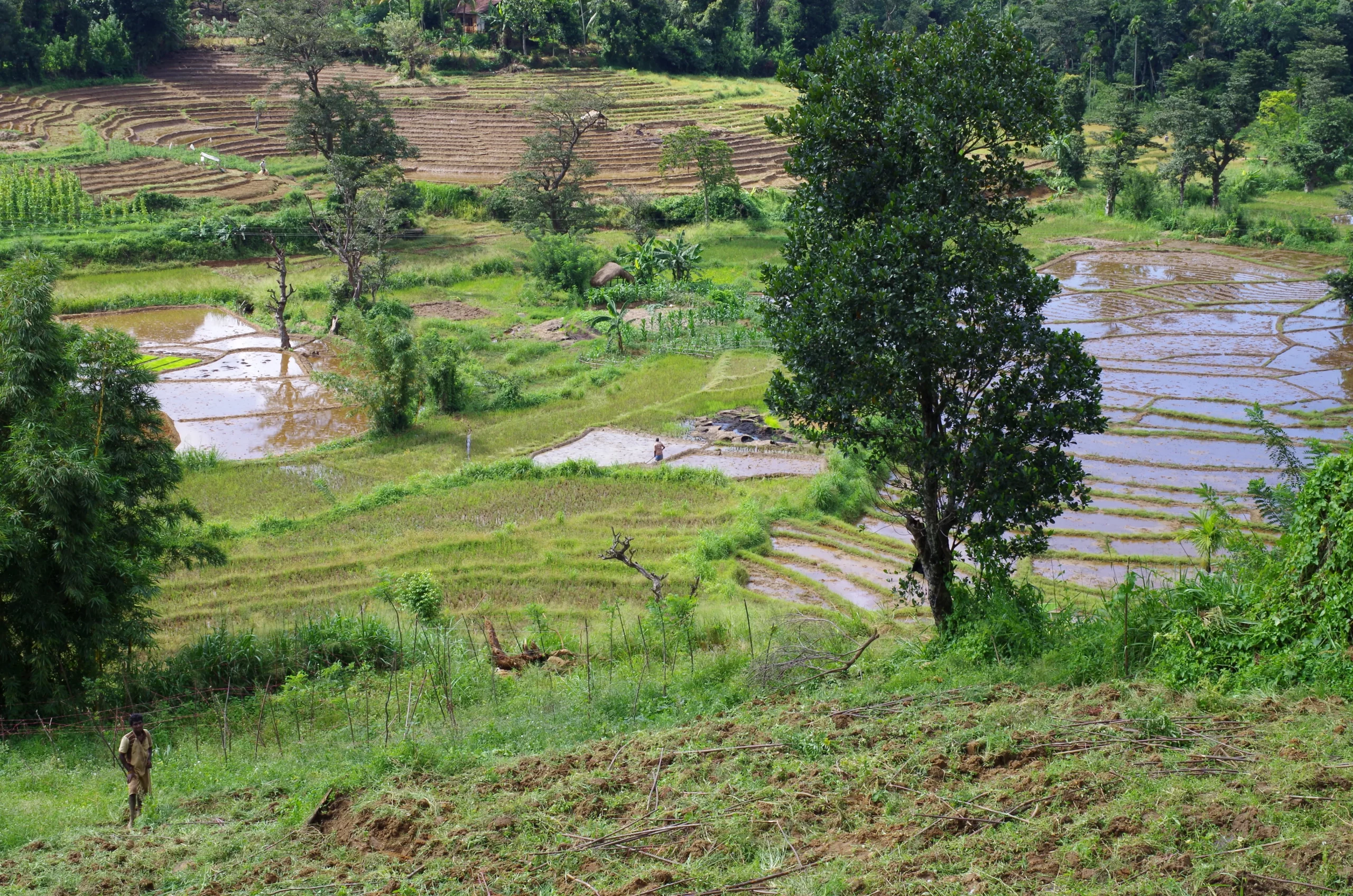
Nuwara Eliya Culture: 10 Unique Experiences to Explore
Table of Contents
Nuwara Eliya Culture
Nuwara Eliya, often referred to as ‘Little England,’ is a picturesque town nestled in the heart of Sri Lanka that boasts a rich and vibrant culture. Renowned for its lush tea plantations, colonial architecture, and cooler climate, Nuwara Eliya offers visitors a unique insight into the local customs and traditions. In this article, we will uncover 10 captivating experiences that showcase the essence of Nuwara Eliya culture. From traditional festivals and culinary delights to engaging with the local community, these experiences promise to leave a lasting impression on every traveler. Join us as we delve into the unique cultural tapestry of Nuwara Eliya, where every corner holds a story waiting to be discovered.
Want to find the best travel deals for this destination? professional adventure planner with our adventure planning specialist!
1. Discover the Tea Plantations: A Cultural Staple of Nuwara Eliya

The tea plantations of Nuwara Eliya are not just breathtakingly beautiful but also an essential part of Nuwara Eliya culture. As you wander through the sprawling green fields, you will witness the meticulous process of tea picking, which has been a tradition for generations. These vast estates, owned by various companies and families, produce some of the finest teas globally.
Moreover, visiting a tea factory provides insights into the tea production process. During my visit, I learned how the leaves are processed and transformed into different types of tea. Many tours also include tastings, allowing you to savor the rich flavors that Nuwara Eliya is renowned for. This unique experience highlights the agricultural roots of the region and its historical significance in Sri Lanka’s economy.
2. Experience the Sinhala and Tamil New Year: A Festive Celebration

One of the most vibrant celebrations in Nuwara Eliya is the Sinhala and Tamil New Year. This festival usually occurs in mid-April and marks the end of the harvesting season. During this time, the town comes alive with colorful decorations and joyful festivities. Families gather to prepare traditional sweets, play games, and participate in rituals that symbolize renewal and prosperity.
Furthermore, witnessing cultural performances during this time is truly special. Folk dances and music fill the air, creating an atmosphere of unity and joy. Locals dress in their finest attire, showcasing the rich cultural heritage of the region. Indeed, participating in these celebrations provides a deeper understanding of the vibrant Nuwara Eliya culture and its communal ties.
3. Traditional Sri Lankan Cuisine: Savoring Local Flavors

Food is an integral part of any culture, and in Nuwara Eliya, indulging in traditional Sri Lankan cuisine is a must. Dishes such as rice and curry, hoppers, and kottu reflect the diverse flavors and culinary heritage of the region. Throughout my journey, I discovered numerous eateries where locals gather to enjoy these delicious meals.
In addition, many restaurants offer cooking classes, allowing you to immerse yourself in the Nuwara Eliya culture by learning how to prepare these dishes. The use of fresh local ingredients, fragrant spices, and unique cooking techniques can enrich your culinary experience. By exploring the local cuisine, you can connect with the stories and traditions that make Nuwara Eliya truly special.
4. The Role of Colonial Architecture in Nuwara Eliya Culture

Nuwara Eliya, often referred to as “Little England,” boasts a distinctive colonial architecture that narrates the story of its British colonial past. As you stroll through the town, you will encounter charming buildings, such as the historic Hill Club and the picturesque Post Office, which showcase the unique blend of Tudor and Victorian styles.
The architecture not only adds to the aesthetic appeal but also reflects the lifestyle and culture of the era. Furthermore, many structures are surrounded by lush gardens, enhancing their grandeur. A visit to Nuwara Eliya would be incomplete without appreciating how this stunning architecture contributes to the local culture.
Ultimately, colonial architecture serves as a bridge connecting the past to the present, reminding visitors of Nuwara Eliya’s rich history. While exploring, take some time to reflect on the significance of these buildings and their impact on the region’s cultural identity.
5. Engage with Local Artisans: Handicrafts and Skills of the Region
One of the most enriching aspects of experiencing Nuwara Eliya culture is engaging with local artisans. The region is known for its skilled craftsmen who produce exquisite handicrafts, ranging from intricate lacework to vibrant textiles. These artisans are dedicated to preserving traditional methods, and visiting their workshops offers a glimpse into their craftsmanship.
Moreover, many artisans offer hands-on workshops, where you can participate and create your own souvenirs to take home. Not only does this support the local economy, but it also allows you to appreciate the value of handmade goods. By connecting with these talented individuals, you gain deeper insight into the time-honored skills that define Nuwara Eliya’s artistic heritage.
In summary, engaging with local artisans enriches your cultural experience while providing an opportunity to learn, create, and support the community.
6. Participate in the Nuwara Eliya Flower Festival: A Colorful Spectacle
The Nuwara Eliya Flower Festival is a vibrant event that exemplifies the region’s rich culture and floral beauty. Typically held in April, the festival features an array of stunning flowers, making it a paradise for gardening enthusiasts. As you navigate through the colorful displays, you will undoubtedly be captivated by the creativity and skill on show.
During the festival, various competitions highlight the best flower arrangements, gardening innovations, and even cultural performances. As a visitor, you can immerse yourself in the festive atmosphere and enjoy traditional music and dance that celebrates the spirit of the season.
Additionally, the festival is a great opportunity for photographers and nature lovers alike. Capture the essence of Nuwara Eliya while exploring the breathtaking floral landscapes! Participating in this festival is not only a feast for the senses but also provides a unique insight into the local culture and community spirit.
7. Explore the Annual Horse Race: A Unique Cultural Event
Insider Tip: Get the most out of your Nuwara Eliya visit with guided tours!
Tip: Discover the best Nuwara Eliya experiences with Viator Tours!
The annual horse race in Nuwara Eliya is a highlight of the cultural calendar, attracting both locals and tourists alike. Taking place every April, this thrilling event showcases the vibrant spirit of the region. As you watch the exhilarating races, you can feel the adrenaline in the air, and it’s truly an experience like no other.
This event not only Highlights the skill of the jockeys and the beauty of the horses but also serves as a celebration of Nuwara Eliya culture. Attendees often dress in their finest attire, making the day a spectacle of fashion as well. Moreover, delicious local food stalls line the venue, allowing you to savor the flavors of Sri Lanka.
In addition to the races, there are various entertainment activities including live music and cultural performances that further enhance the festive atmosphere. Don’t miss this unique blend of sport and culture that captures the essence of Nuwara Eliya!
8. Visit Traditional Hindu Temples: A Journey into Spirituality
Nuwara Eliya is home to several stunning traditional Hindu temples that embody the spiritual essence of the local culture. The intricate architecture and vibrant colors reflect the deep religious significance that these temples hold for the Hindu community. While visiting, you will feel a profound sense of peace and tranquility.
One of the most famous temples is the Shri Bhakta Hanuman Temple, dedicated to Lord Hanuman. Visitors can participate in the rituals and experience the local customs firsthand. Additionally, the temple is surrounded by beautiful garden landscapes, providing a serene backdrop for reflection.
Furthermore, the temple festivals are vibrant celebrations filled with music, dance, and traditional offerings. By engaging in these experiences, you’ll gain a deeper understanding of the Nuwara Eliya culture and its spiritual roots.
9. Join a Local Cinnamon Tour: From Plant to Spice
Recommendation: Don't miss out on amazing Nuwara Eliya tours - book now!
Cinnamon is a pivotal crop in Nuwara Eliya, and participating in a cinnamon tour offers an authentic look into this valuable resource. During the tour, you will have the opportunity to learn about the cultivation, harvesting, and processing of cinnamon, which is a staple of Sri Lankan cuisine. This unique experience not only educates but also strengthens your appreciation for the Nuwara Eliya culture.
Moreover, knowledgeable local guides share insights about the significance of cinnamon in traditional medicine and cooking. Visitors can even engage in hands-on Activities such as peeling and processing the bark. These interactive elements make the tour enjoyable for all ages.
Additionally, visitors can purchase high-quality cinnamon products directly from the source, ensuring you take home a piece of Nuwara Eliya’s rich heritage. Overall, the cinnamon tour exemplifies how local culture is intertwined with agriculture and community.
10. Experience Local Music and Dance: Cultural Heritage in Motion
The vibrant local music and dance of Nuwara Eliya is an essential reflection of its rich culture. When you visit, you’ll notice how music forms an integral part of both daily life and celebrations. Traditional Sri Lankan music includes a variety of instruments, such as the rabana (a hand drum) and the flute, which create captivating rhythms and melodies.
Moreover, dance forms like Kandyan dance showcase the history and stories of the region. These performances often depict ancient myths and legends, inviting tourists to immerse themselves in the local heritage. Attending a live performance not only entertains but also educates visitors on Sri Lankan culture.
Additionally, the rhythmic movements and colorful costumes are truly mesmerizing. If you get the chance, consider joining a workshop where you can learn traditional dances. This interaction with the local culture enhances your experience and allows you to appreciate the art forms of Nuwara Eliya more deeply.
Exploring Nuwara Eliya culture offers a fascinating journey through the heart of Sri Lanka’s traditions and customs. From the lush tea plantations that produce some of the world’s finest tea to the vibrant festivals that bring the community together, every experience allows visitors to connect with the local way of life. Which aspect of Nuwara Eliya culture intrigues you the most? Let us know in the comments, and be inspired to immerse yourself in the rich cultural tapestry of this stunning region.